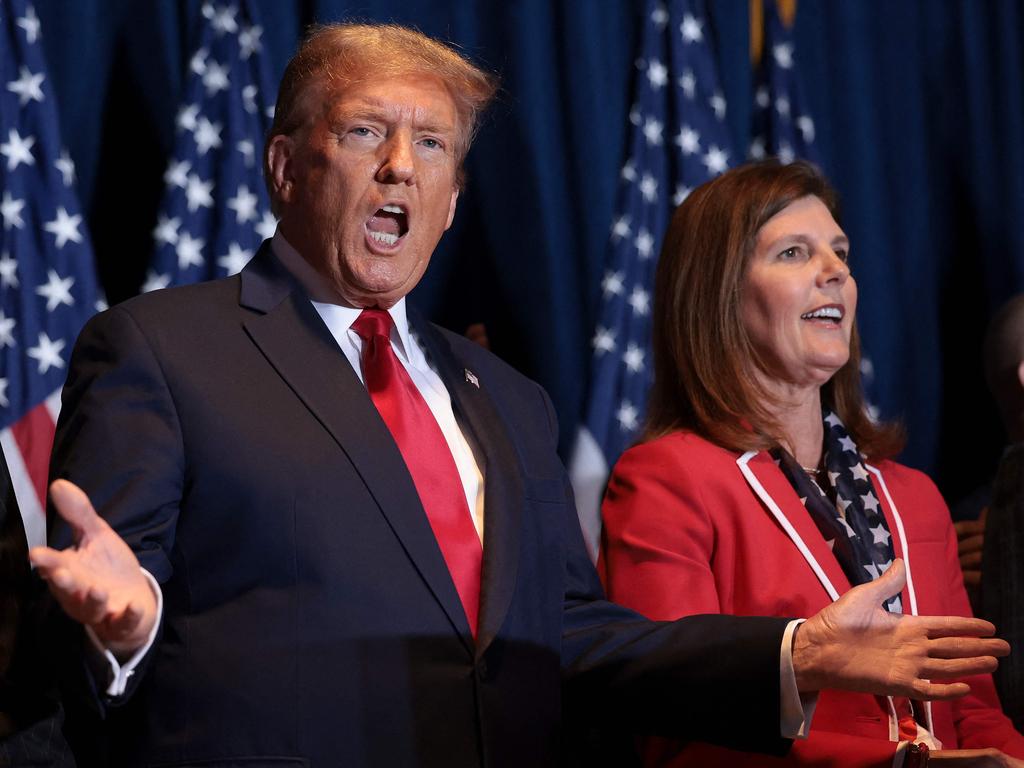
As expected, Donald Trump, who visited the state only three times since announcing his campaign in late 2022, thrashed his sole remaining rival, Nikki Haley, for the Republican nomination, winning about 68 per cent of the vote to her 27 per cent.
The Democrat vote was at little more interesting, with Joe Biden receiving around 80 per cent, well below the 96 per cent he enjoyed in South Carolina earlier this month.
Voters typically line up behind an incumbent president who faces few serious challengers, but the state’s large, traditionally Democrat-voting Arabic population, which helped Biden win the election in 2020, was not happy.
Angry with the President’s alleged excessive support for Israel in its war on Hamas, they, and their rag-tag progressive supporters on the left of the Democratic Party, voted “uncommitted”, ringing alarm bells in the White House.
One Arab-American group, Listen to Michigan, was hoping for 10,000 “uncommitted” votes. Another one, Our Revolution, was hoping for 10 per cent. As it turned out, Democrats were on track to register over 100,000 “uncommitted” votes in the state’s primary, or 13 per cent of the total cast, a concerning result should such disgruntled voters failed to migrate back to Biden come November.
Trump won the 10 million strong Midwest state, which carries 15 electoral college votes, by a slender 10,000-odd in 2016 ahead of Biden flipping it blue by about 154,000 in 2020. In a likely rematch between Biden and Trump, which polls suggest will be close, Michigan will matter once again.
Primary contests, state-based votes where Republicans and Democrats separately pick who they want to be their party’s presidential candidate, do not usually affect US foreign policy.
As the primary approached, Biden sought to pressure Israel publicly to slow its military operations in Gaza, potentially even to include calling off a planned invasion of Rafah in the south. The State Department even said Israeli settlements on the West Bank were illegal under international law, a second apparent effort to placate Michigan voters.
The White House is unlikely to go much further to assuage Arab Americans, who represent a far smaller share of the US population than Jewish Americans.
Foreign policy wasn’t the only issue top of mind, at least for voters around Detroit, still home to a big chunk of US car manufacturers which have been struggling to adapt to the transition to electric vehicles.
Blue-collar union workers have been frustrated with the Biden administration’s mandates to shift the nation to electric vehicles, which require fewer workers to make and cost more to buy, a view Republicans have been seeking to capitalise on.
Both Trump and Biden will be left asking a similar question after Michigan’s primary: will their party’s voters who aren’t happy with their leadership ultimately vote for them in November.








If Israel falls in line with US demands to cease hostilities against Hamas for a period of time in coming days it will to some extent be thanks to the Democrat voters of Michigan, which held its primary contest for Republican and Democrat presidential hopefuls on Tuesday (Wednesday AEDT).